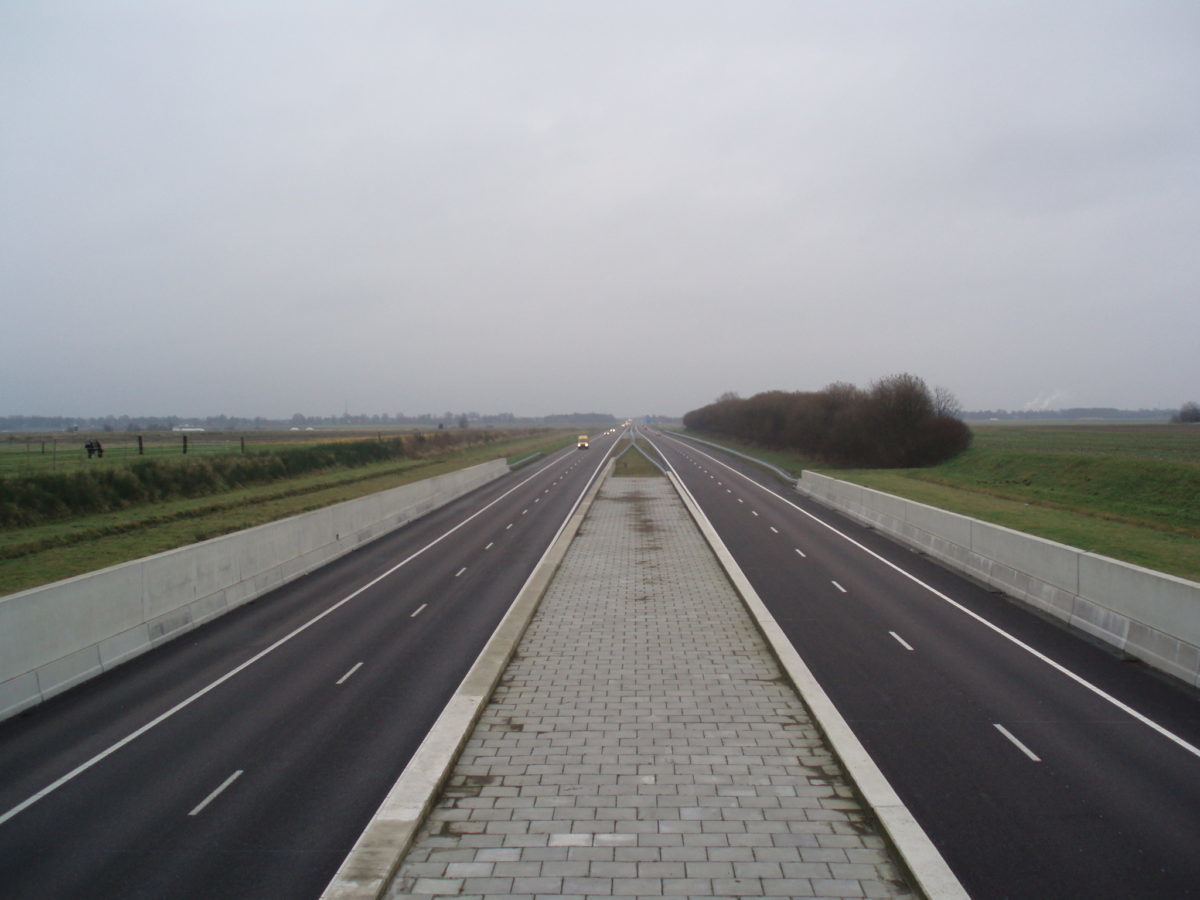From pv magazine global
Rijkswaterstaat – the water management agency of the Netherlands, under the Ministry of Infrastructure and Water Management – plans to deploy a large-scale solar plant along the length of the A37 highway, in the northeastern province of Drenthe.
The agency is now holding meetings with the Drenthe provincial government and the municipalities of Coevorden, Emmen, and Hoogeveen – as well as network operator Enexis Groep and distribution system operator Rendo – to discuss how the solar park will be developed.
The project, which is part of a government program to build renewable energy pilot projects on state land, will involve the installation of PV modules along either side of a 40-kilometer (25 miles) stretch of the highway, in addition to solar panels on the median strip between the two lanes. The project will span roughly 300 hectares in total, and will be built without having a strong visual impact on the surrounding landscape, Rijkswaterstaat explained. The agency conducted a preliminary spatial exploration study for the project in 2016.
In October 2017, Netherlands-based construction firm Heijmans announced plans to build noise barriers featuring integrated bifacial solar modules along several highways in the Netherlands. Its first project, finalized last February, is a 400-meter stretch of the A50, near the southeastern town of Uden.
The Rijkswaterstaat has used the installation to study the feasibility of installing even more solar noise-barrier projects. The European Commission has since financed a new €1.4 million project – run by the Rijkswaterstaat, the Energy Research Centre of the Netherlands, and the Solar Energy Application Community – to accelerate the use of PV on noise barriers along Europe’s main roads.
In September 2018, the agency also announced plans to test the feasibility of solar roads as an alternative to the construction of big solar projects. “Finding space for the generation of solar energy requires creativity,” the agency said.
Rijkswaterstaat started to look for alternative surfaces on which to deploy solar in March 2017, when it announced a plan to use water surfaces and state land for PV arrays and other renewable energy projects.
This content is protected by copyright and may not be reused. If you want to cooperate with us and would like to reuse some of our content, please contact: editors@pv-magazine.com.









The most crucial infrastructure for all renewable energy projects is NETWORKS OF REGIONAL HYDROGEN PRODUCTION FACTORIES. Produce hydrogen from electricity around various small renewable energy devices/systems. Store hydrogen in compressed hydrogen tanks. It is normal to produce standard sized compressed hydrogen canisters too, so that can distribute standard sized hydrogen canisters anywhere in any angles of societies as Coca Cola bottles anywhere. Buy retailed hydrogen by exchanging standard sized compressed hydrogen canisters.
New global trend of CITY RENEWABLE ENERGY ORIENTED ARCHITECTURE is likely to install solar top roofs along roads with roof pillars along central lines of roads (or along curb lines), but is not likely to install solar tiles in road surfaces.
For example, give tenders for corporations to install solar top roofs along various city roads. They will buy Tesla solar roof tiles, and sell electricity to networks of regional hydrogen production factories. Anyones get profits ! So once again i repeat that necessary infrastructure for all is NETWORKS OF REGIONAL HYDROGEN PRODUCTION FACTORIES.